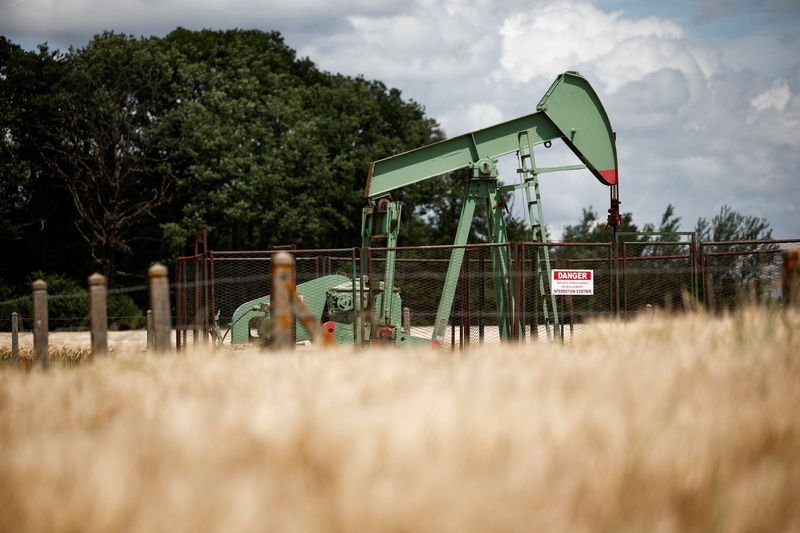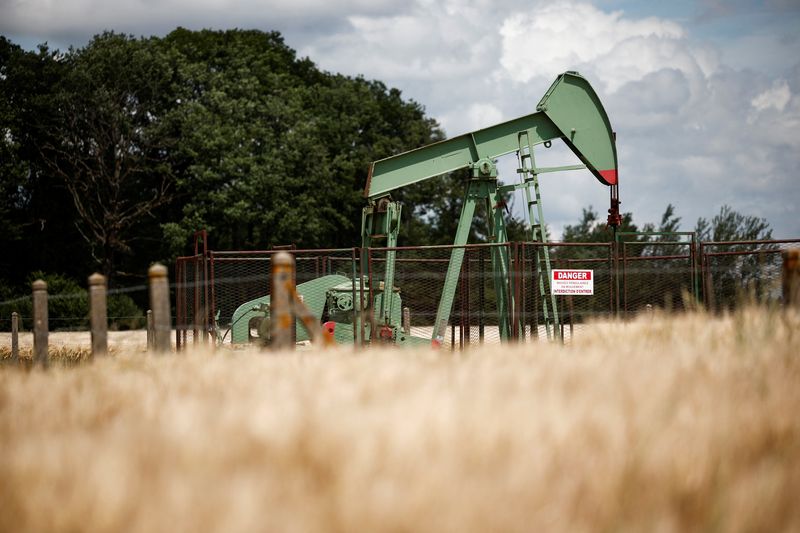
By Florence Tan
SINGAPORE (Reuters) – Oil prices hovered at eight-month lows on Monday as fears of a recession in the United States, the world’s top oil consumer, offset concerns that escalating tensions in the Middle East may affect supplies from the largest producing region.
Brent crude futures inched down 4 cents, or 0.1%, to $76.77 a barrel by 0035 GMT, while U.S. West Texas Intermediate crude futures were at $73.39 a barrel, down 13 cents, or 0.2%.
Prices were supported by persistent fighting in Gaza with an Israeli airstrike hitting two schools and killing at least 30 people on Sunday, Palestinian officials said, the day after a round of talks in Cairo ended without result.
Israel and the United States are bracing for a serious escalation in the region after Iran and its allies Hamas and Hezbollah pledged to retaliate against Israel for the killings of Hamas’ leader Ismail Haniyeh and Fuad Shukr, a top military commander from Lebanese armed group Hezbollah last week.
“If this conflict intensifies, crude exports could be impacted,” ANZ analysts said in a note.
Despite worries about escalating tensions in the Middle East, Brent and WTI tumbled more than 3% to settle at their lowest since January on Friday in a volatile week. Last week, both contracts marked their fourth straight week of losses, their biggest losing streaks since November.
Oil prices were dragged down by U.S. recession fears and after OPEC+, an alliance between the Organization of the Petroleum Exporting Countries and other producers such as Russia, stuck to its plan to phase out voluntary production cuts from October.
The market had been expecting OPEC+ to delay the phase out of voluntary production cuts beyond the third quarter, ANZ analysts said.
A Reuters survey showed on Friday that OPEC oil output rose in July despite production cuts by the group.
In the U.S., the number of operating oil rigs were steady at 482 last week, Baker Hughes said in a weekly report.
Weak economic data across the globe weighed on oil prices, on concerns that a sluggish global economic recovery would dampen fuel consumption.

Data released last week showed that the U.S. economy added fewer jobs than expected last month while factories across the U.S., China and Europe grappled with tepid demand.
Slumping diesel consumption in China, the world’s biggest contributor to oil demand growth, is weighing on global oil prices.
This post is originally published on INVESTING.


